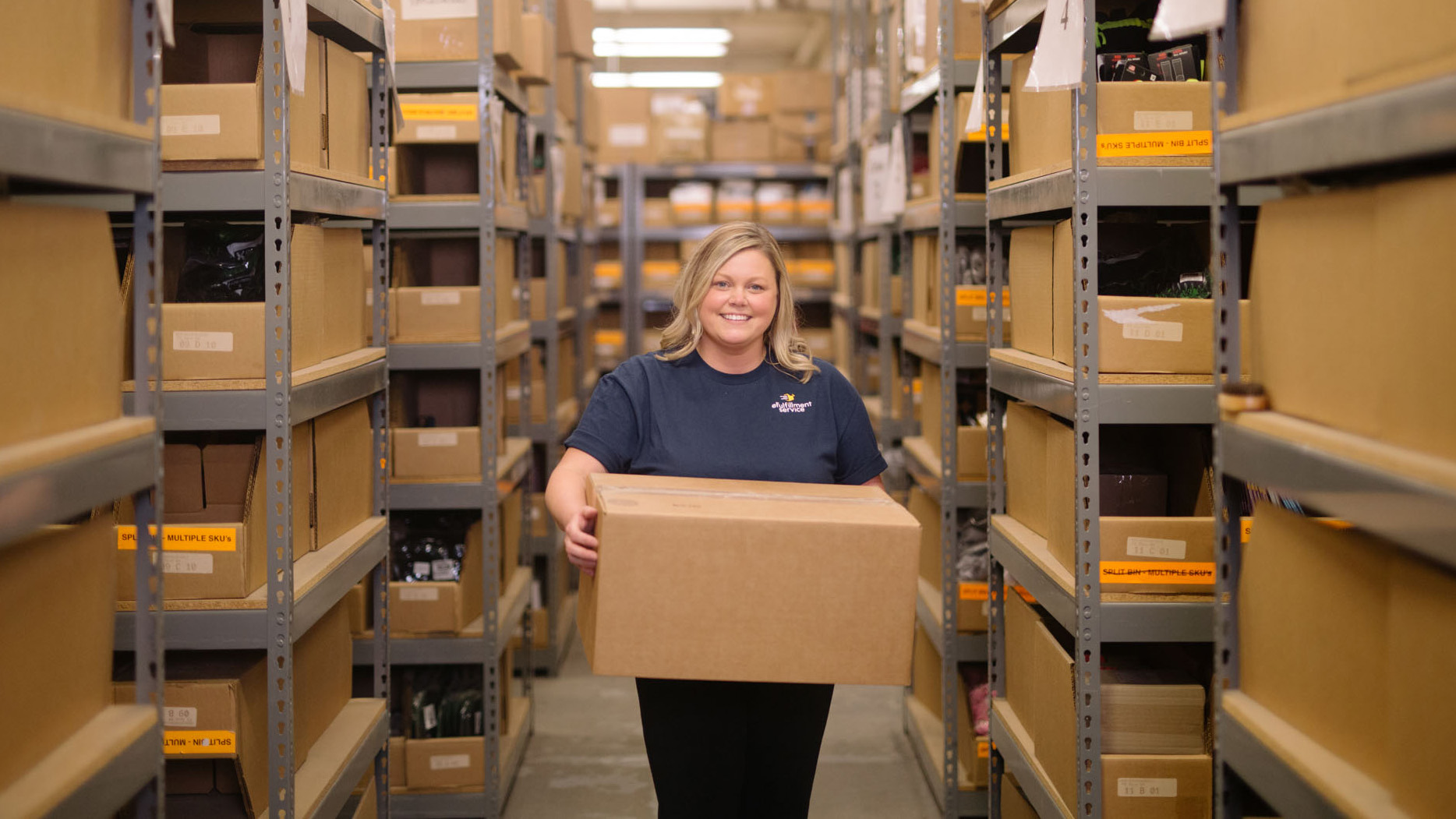
Imagine you’re an entrepreneur whose online store is hitting it big. Orders are pouring in at breakneck speed, so much so that your living room is now a makeshift warehouse, and your desk is buried under an avalanche of shipping labels. Does this ring a bell? It’s in this all-too-familiar chaos that fulfillment services swoop in to save the day.
Think of fulfillment services as a business partner who is in expert in shipping and logistics. They’re the ones doing the heavy lifting—literally. They pick, pack, and ship out your products, transforming your logistical nightmares into a well-oiled machine. But let’s dig deeper: what are these services exactly, and how do they work their magic to smooth out your entrepreneurial path and keep your customers grinning?
In the following article, we’re going to delve into the nitty-gritty of fulfillment services. We’ll uncover how they tick, why they’re crucial for scaling your business, and how they can morph your cluttered living space back into a zen sanctuary. It doesn’t matter if you’re a battle-hardened e-commerce warrior or just stepping into the arena; getting a grip on fulfillment services is a game-changer. Let’s unpack (pun intended!) what these services are and why they are a game changer in the world of e-commerce.
Jump right in: How to Sell on Amazon Without Inventory
Understanding Fulfillment Services
What are Fulfillment Services?
Fulfillment services are third-party logistics providers that handle the warehousing, picking, packing, and shipping of goods for e-commerce businesses. They streamline the order fulfillment process, allowing online retailers to focus on other aspects of their business while ensuring efficient and timely delivery of products to customers. These services are provided by third-party logistics (3PL) companies that act as the operational backbone for businesses, especially those in the e-commerce domain.
Types of Services Offered by a Fulfillment Service
Inventory Management:
- Description: This service involves the systematic control of ordering, storing, and using a company’s inventory.
- Benefits: It helps in maintaining optimal stock levels, preventing overstocking or stockouts, and ensuring products are readily available when orders are placed.
Warehousing:
- Description: Warehousing includes the storage of products in a secure and organized environment.
- Benefits: It frees up space for businesses and ensures products are stored in conditions that preserve their quality.
Order Processing:
- Description: This encompasses the entire process from receiving an order to preparing it for shipment.
- Benefits: Efficient order processing leads to quicker turnaround times, enhancing customer satisfaction.
Picking and Packing:
- Description: Picking involves selecting the correct items for an order from the inventory, while packing refers to securely wrapping them for shipment.
- Benefits: Accurate picking and professional packing reduce errors and damages, thereby improving the customer experience.
Shipping and Logistics:
- Description: This service includes the transportation of products from the warehouse to the customer.
- Benefits: It often involves negotiating lower shipping rates and providing a variety of shipping options to meet diverse customer needs.
Returns Management:
- Description: Handling returned products, including receiving, inspecting, and restocking them.
- Benefits: Efficient returns management can increase customer trust and loyalty, making them more likely to shop again.
Custom Packaging and Branding:
- Description: Offering custom packaging solutions that align with a brand’s identity.
- Benefits: Enhances brand recognition and provides a unique unboxing experience for customers.
Kitting and Assembly:
- Description: Combining multiple products into a single package for sale as a bundled item.
- Benefits: Kitting can streamline order fulfillment for bundled products and often leads to increased sales.
Customer Service and Support:
- Description: Providing support for order-related inquiries and issues.
- Benefits: High-quality customer service ensures a positive buying experience and helps in retaining customers.
Real-Time Inventory Tracking:
- Description: Utilizing technology to track inventory levels in real-time.
- Benefits: This allows for better inventory planning, reduces the risk of stockouts, and enhances decision-making efficiency.
Each of these services plays a vital role in the seamless operation of an e-commerce business, contributing to a streamlined supply chain and a superior customer experience. By understanding and utilizing these fulfillment services effectively, businesses can significantly enhance their operational efficiency and customer satisfaction.
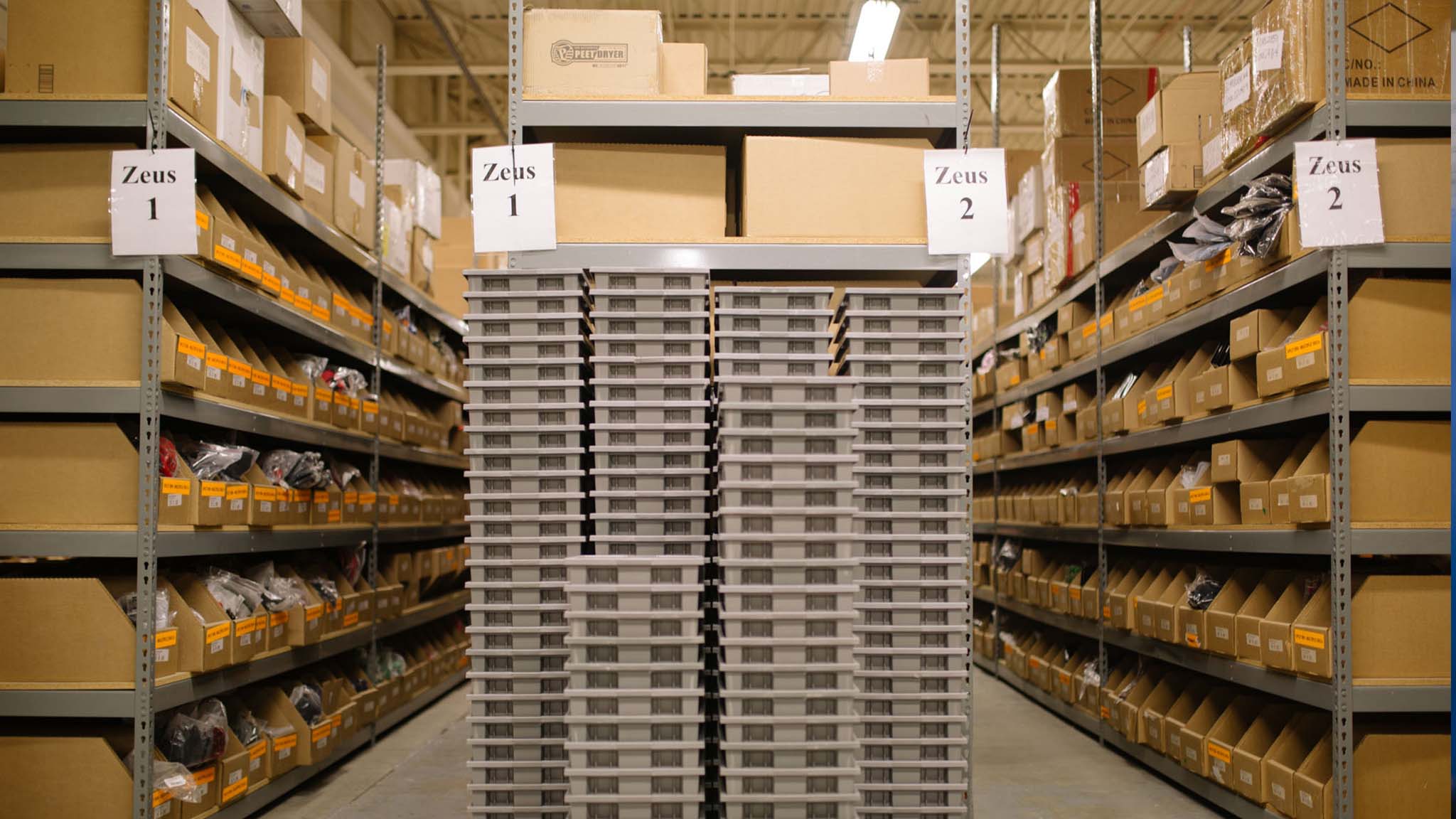
The Role of Third-Party Logistics (3PL)
To truly appreciate fulfillment services, it’s crucial to understand what 3PL is. In simple terms, a 3PL provider is an external company that takes over your logistical operations. They handle everything from inventory management, picking and packing, kitting, returns, and getting your products into the hands of your customers’. By doing so, they allow you to focus on what you do best: growing your business.
Why Fulfillment Services? Why Now?
The e-commerce world is booming. With that boom comes the challenge of meeting customer expectations – fast shipping, accurate orders, and hassle-free returns. Fulfillment services are not just a luxury but a necessity in this fast-paced market. They ensure that your products are stored safely, packed with care, and shipped promptly. This efficiency is key to keeping your customers happy and your business thriving.
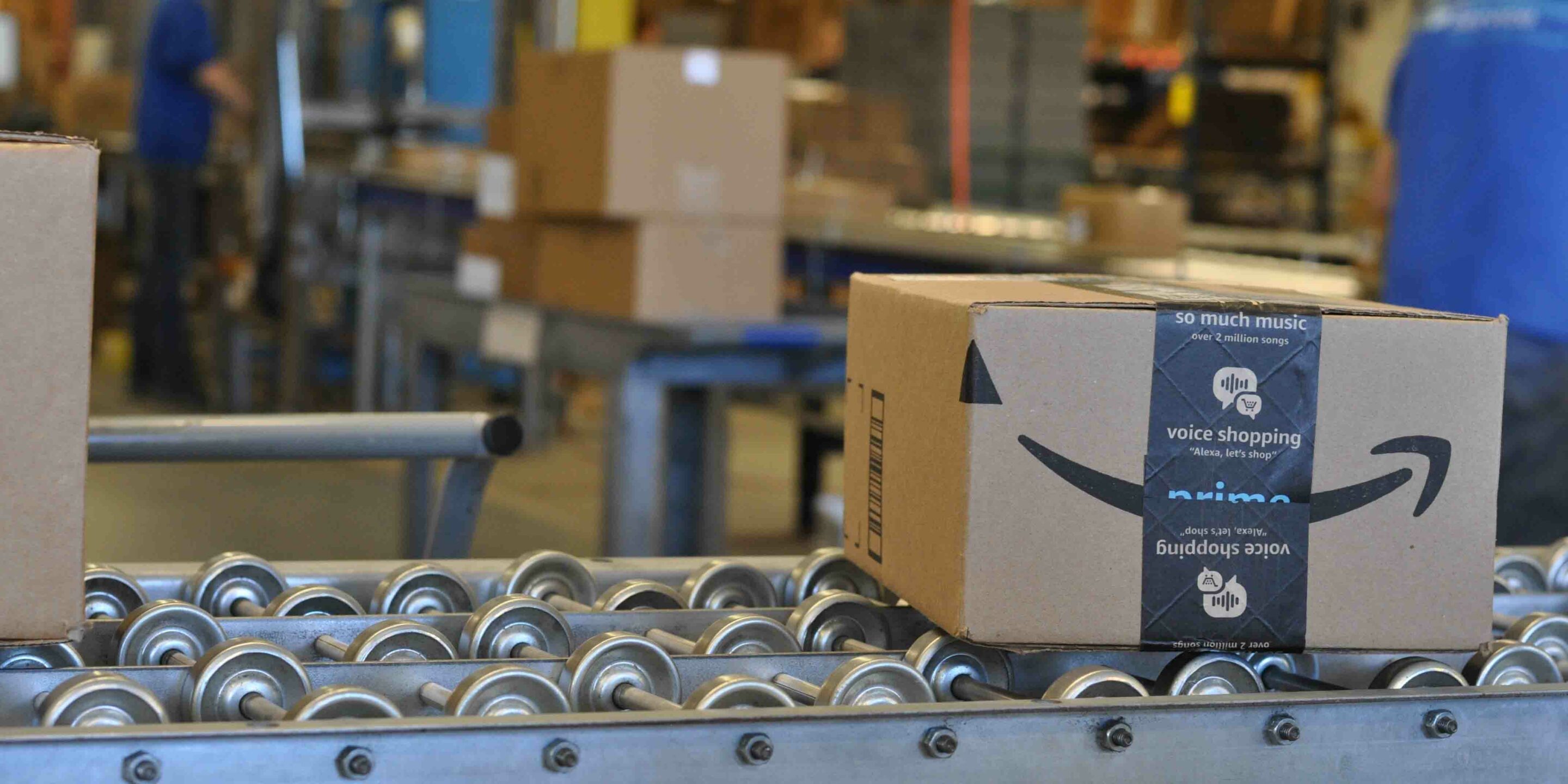
The Evolution of Fulfillment Services
Fulfillment services have come a long way. Initially, they were a straightforward process of storing and shipping products. However, as e-commerce evolved, so did these services. Today, they are a complex orchestra of inventory management, order processing, kitting, shipping logistics, and customer returns. Advanced technology plays a significant role in this evolution, bringing in automation, real-time tracking, and data analytics to the mix.
Why It’s Essential to Keep Up
Understanding fulfillment services is not just about keeping up with the logistics; it’s about staying ahead in the competitive e-commerce landscape. Knowledge of these services allows you to make informed decisions about scaling your business, managing resources, and ensuring customer satisfaction. It’s about turning a potential business bottleneck into a smooth-running, efficient process that drives growth.
Do I Need a Fulfillment Service?
Are fulfillment services the key to scaling your business efficiently? Use this simple quiz to find out! Score each of the following eight questions from 1 to 5 (where 1 = Strongly Disagree, 5 = Strongly Agree) to evaluate if a fulfillment service might be a good choice for your company.
How Fulfillment Services Work with a 3PL
Below is a guide for understanding complex processes of what fulfillment services are in a nutshell. Let’s visually break down the fulfillment process when working with a Third-Party Logistics provider (3PL) and compare it to handling fulfillment in-house.
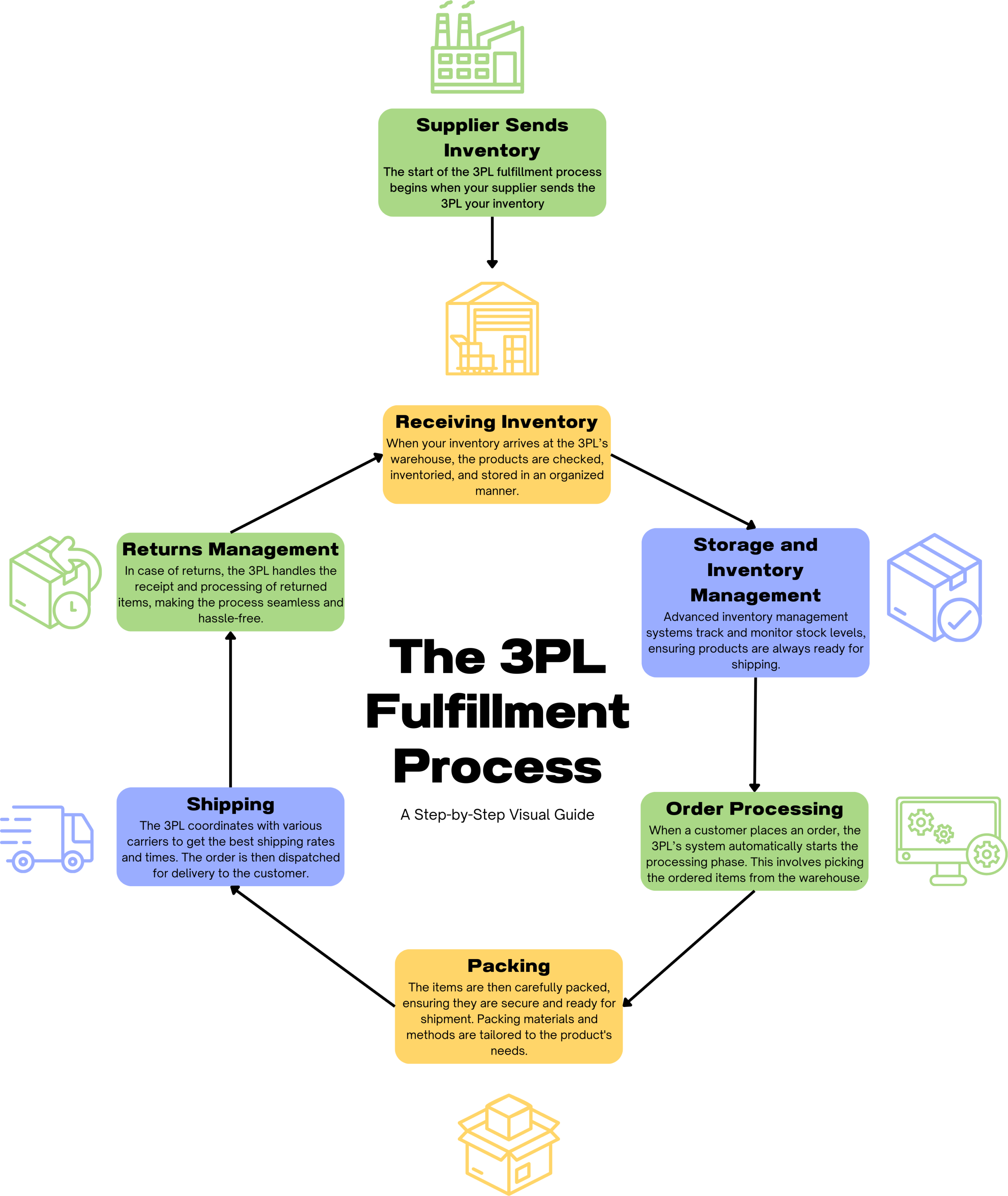
The Fulfillment Services of a 3PL: A Step-by-Step Guide
Step 1 – Receiving Inventory: The process starts when your inventory arrives at the 3PL’s warehouse. Products are checked, inventoried, and stored in an organized manner.
Step 2 – Storage and Inventory Management: Your products are safely stored in the 3PL’s warehouse. Advanced inventory management systems track and monitor stock levels, ensuring products are always ready for shipping.
Step 3 – Order Processing: When a customer places an order, the 3PL’s system automatically starts the processing phase. This involves picking the ordered items from the warehouse.
Step 4 – Packing: The items are then carefully packed, ensuring they are secure and ready for shipment. Packing materials and methods are tailored to the product’s needs.
Step 5 – Shipping: The 3PL coordinates with various carriers to get the best shipping rates and times. The order is then dispatched for delivery to the customer.
Step 6 – Returns Management: In case of returns, the 3PL handles the receipt and processing of returned items, making the process seamless and hassle-free.
Comparing 3PL and In-House Fulfillment
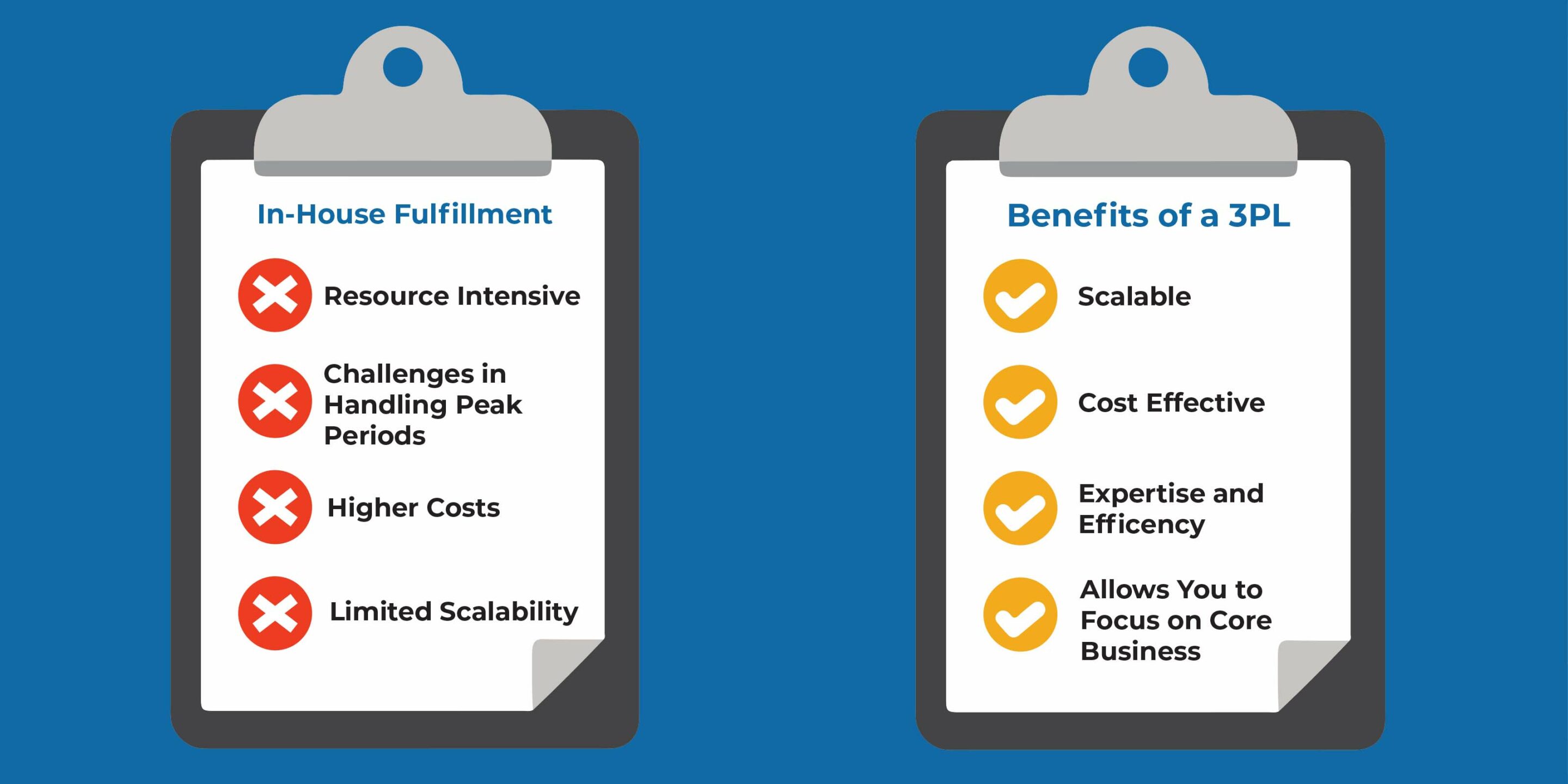
In- House Fulfillment Challenges
Resource Intensive: Operating in-house fulfillment requires significant investment in terms of time and resources. This includes managing staff, maintaining equipment, and handling day-to-day logistics operations.
Challenges in Handling Peak Periods: During peak seasons or unexpected surges in orders, in-house operations might struggle to cope with the increased demand, leading to delays and decreased customer satisfaction.
Higher Costs: Managing an in-house fulfillment process often incurs significant overheads, including the costs of warehouse space, staff, and equipment. Unlike 3PLs, in-house operations may not benefit from bulk shipping discounts.
Limited Scalability: In-house fulfillment can often be restricted by space constraints and limited resources, making it challenging to scale up operations efficiently during peak times or business growth.
3PL Fulfillment Service Benefits
Scalability: 3PLs offer greater flexibility to scale operations up or down based on your business needs, unlike in-house operations where scalability is often limited by space and resources.
Cost-Effectiveness: With a 3PL, you benefit from their bulk shipping discounts and don’t have to bear the overheads of running a warehouse, leading to significant cost savings.
Expertise and Efficiency: 3PLs bring specialized expertise in logistics, using advanced technology and processes that might be challenging to replicate in-house.
Allows You to Focus on Core Business: By outsourcing fulfillment, you can focus on product development, marketing, and other core aspects of your business, instead of getting bogged down with logistical complexities.
The Importance of Fulfillment Services for Small Startups
In the bustling world of startups, where every decision can turn the tides of your business, understanding the role of fulfillment services is not just important – it’s critical. Let’s break down why these services are a game-changer, especially for small startups wrestling with the twin titans of space constraints and high order volumes.

The Space and Volume Conundrum
Picture this: your startup is gaining traction, orders are coming in at lightning speed – it’s everything you dreamed of, right? But there’s a catch. Your garage or makeshift warehouse is bursting at the seams, and you’re spending more time playing Tetris with boxes than strategizing your next big business move. This is where fulfillment services sweep in like a knight in shining armor.
Fulfillment services take the storage and logistics load off your plate. They store your inventory in expansive, well-organized warehouses, freeing up your space and mind. This means no more tripping over boxes during your midnight snack runs!
Tackling High Order Volumes with Finesse
Now, let’s talk about managing high order volumes – a sweet but daunting challenge. As your startup scales, so does the complexity of handling an increasing number of orders. Fulfillment services are the maestros of order management. They don’t just process orders; they optimize the entire journey from the warehouse shelf to your customer’s doorstep. The result? Every order is an opportunity to impress your customer with lightning-fast and accurate deliveries.

Beyond Logistics: Customer Satisfaction and Scalability
But fulfillment services are not just about stowing and sending stuff. They’re about crafting experiences – the kind that turns first-time buyers into lifelong fans. How? By ensuring that each package is a delight to receive – on time, every time. This level of reliability and professionalism elevates your brand in the eyes of your customers, nurturing trust and loyalty.
Moreover, scalability becomes a breeze with fulfillment services. They flex and bend with the ebb and flow of your business, ensuring that whether you’re dealing with a holiday rush or a surprise surge in orders, your business remains unshakably efficient.

Focusing on What Truly Matters
Last but not least, fulfillment services liberate you from the nitty-gritty of logistics, so you can focus on what truly matters – growing your business, brainstorming your next big idea, and connecting with your customers. They handle the operational heavy lifting, giving you back what every entrepreneur craves the most – time.
In a nutshell, fulfillment services are not just a logistical solution; they’re a strategic partner in your startup’s journey to success. They solve the space and volume puzzle, enhance customer satisfaction, offer scalability, and free you up to focus on the big picture. So, if you’re looking to give your startup a competitive edge, it’s time to consider what fulfillment services can do for you.
Fulfill Orders Effortlessly!
Get a FREE quote from eFulfillment Service to see how we could help simplify your online order fulfillment.
Addressing Common Misconceptions About Fulfillment Services
Navigating through the world of fulfillment services can sometimes feel like walking through a maze of myths and misunderstandings. It’s time to set the record straight. In this section, we’ll debunk common misconceptions and answer some frequently asked questions, clearing the fog around fulfillment services.
Misconception: Fulfillment Services Are Too Expensive for Startups
Truth: While there’s a cost involved, the long-term savings and efficiency gains often outweigh the initial investment. Bulk shipping discounts, reduced warehousing costs, and the elimination of the need for dedicated logistics staff can actually make fulfillment services a cost-effective choice for growing startups.
Misconception: Fulfillment Services Impersonalize Customer Experience
Truth: Contrary to this belief, many fulfillment services offer personalized packaging and branding options. They understand the importance of customer experience and work to maintain the personal touch that startups strive for.
Misconception: Only Large Companies Benefit from Fulfillment Services
Truth: Fulfillment services offer scalable solutions perfect for businesses of all sizes. They are especially beneficial for startups experiencing rapid growth and looking to scale without logistical bottlenecks.
Simplify Your Shipping with a Fulfillment Service!
Get a free quote from eFulfillment Service and see how a 3PL could simplify your fulfillment!
Conclusion – What are Fulfillment Services
As we wrap up this comprehensive guide on how to sell on what fulfillment services are, let’s take a moment to reflect on what we’ve covered:
Fulfillment Services Key Take-Aways:
Strategic Asset for Growth: Fulfillment services are more than a logistical solution; they’re a strategic asset, vital for the growth and scalability of startups.
Efficient Order and Inventory Management: These services excel in handling increasing order volumes and efficiently managing storage space, crucial for rapidly growing businesses.
Enhancing Customer Satisfaction: By ensuring prompt and accurate deliveries, fulfillment services play a pivotal role in boosting customer satisfaction and loyalty.
Tailored Solutions Across Industries: Whether it’s fashion, electronics, or health products, fulfillment services offer solutions customized to various industry needs.
Your Next Steps
Ready to embark on a journey toward streamlined logistics and enhanced growth? Reach out to eFulfillment Service for a bespoke fulfillment solution. We specialize in helping startups like yours navigate the complexities of order fulfillment with ease and efficiency. Here’s what we offer:
- Get a Free Quote: Contact us today to get a free quote and learn how our services can be customized to your unique business needs.
- Proven Track Record: Our commitment to excellence is reflected in the testimonials from numerous satisfied clients.
- Tailored Solutions: We understand that each startup has its unique challenges, and we’re here to offer solutions that fit perfectly with your business model.
Let eFulfillment Service be your partner in transforming your fulfillment process, enhancing your customer experience, and catapulting your business to new heights.
FAQs: Fulfillment Services
What does a fulfillment service do?
A fulfillment service takes charge of storing, picking, packing, and shipping products on behalf of a business. It handles the logistics from the moment an order is placed to when it’s delivered to the customer.
What are the four types of fulfillment?
The four types include:
- a) In-house Fulfillment: Managed by the company itself.
- b) Third-Party Logistics (3PL): Outsourced to a specialized provider.
- c) Dropshipping: Supplier ships directly to the customer.
- d) Hybrid Fulfillment: Combination of any of the above methods.
What are examples of fulfillment centers?
Fulfillment centers are specialized warehouses where fulfillment services like inventory storage, order processing, and shipping are conducted. Examples include Amazon FBA (Fulfillment by Amazon) and eFulfillment Service.
What is the difference between fulfillment and warehouse?
A warehouse is a storage facility for goods. Fulfillment centers, while also providing storage, offer additional services like order processing and shipping – they are dynamic hubs where products are actively managed and dispatched.
What is the difference between logistics and fulfillment?
Logistics is a broader term that encompasses the entire process of managing how resources are acquired, stored, and transported to their final destination. Fulfillment refers specifically to the process of fulfilling customer orders, from picking and packing to shipping.
Get a Free Quote Today!
Get a free quote from eFulfillment Service and see how a 3PL could simplify your fulfillment!




0 Comments